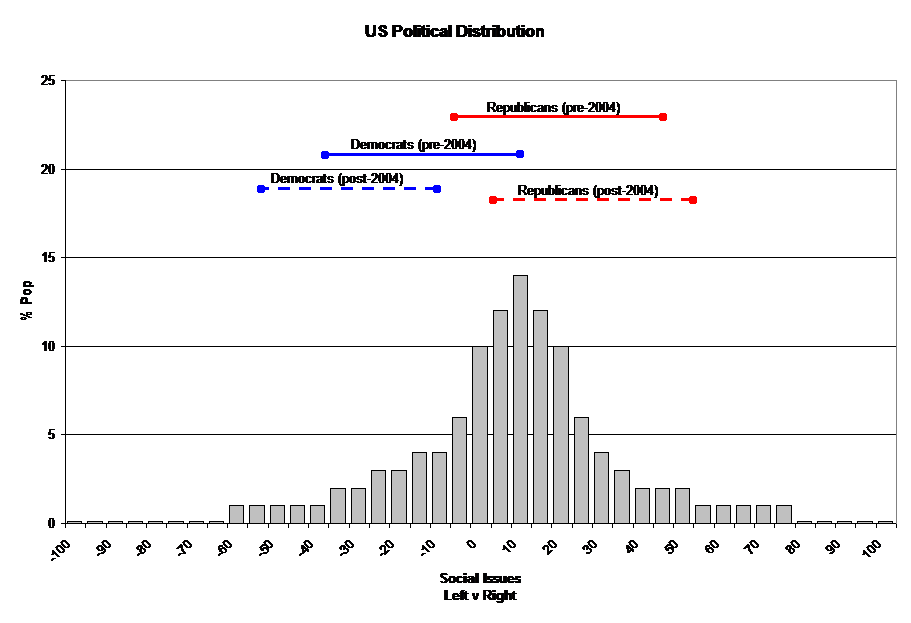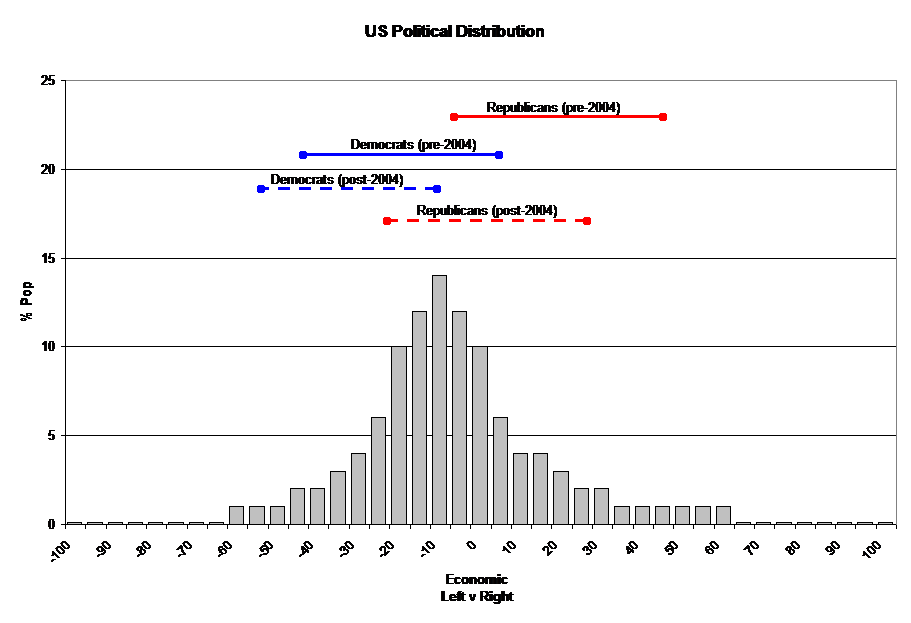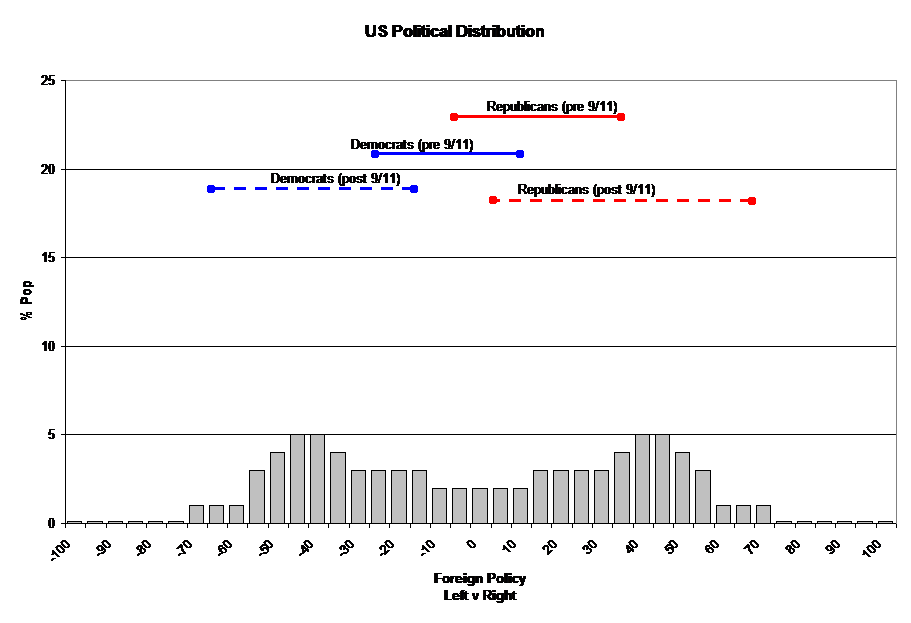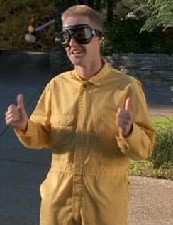GOP moving left: Part 2
One of my regular readers commented on part 1 of this discussion that a Stanford professor, Morris Fiorina, had done some work on this subject. I decided to email Dr. Fiorina to get his thoughts on my analysis. Here was his reply:
I think that Dr. Fiorina is spot-on here, with a caveat. The biggest problem with my original analysis was that I lumped all the various political issues together. As it relates to social issues, I believe that Dr. Fiorina is correct in saying that ideological purity is tantamount. But I'm not so sure about economic issues.
I have therefore redone my original analysis as separate graphs for social issues, economic issues, and foreign policy.
 On the social issues graph, the electorate has shifted to the right. This is certainly a reflection of the "values vote" from last year. Much of the current vitriol between Republicans and Democrats is because of this gap.
On the social issues graph, the electorate has shifted to the right. This is certainly a reflection of the "values vote" from last year. Much of the current vitriol between Republicans and Democrats is because of this gap.
 My original graph from yesterday's article where I asserted that Republicans are moving to the left is reflected in this economic issues graph. And in this one I believe the electorate has shifted to the left. Excepting the tax cuts and Bush's Social Security reforms, the Republicans have certainly shifted leftward as reflected in the Medicare reform, steel tariffs, and the recent highway bill.
My original graph from yesterday's article where I asserted that Republicans are moving to the left is reflected in this economic issues graph. And in this one I believe the electorate has shifted to the left. Excepting the tax cuts and Bush's Social Security reforms, the Republicans have certainly shifted leftward as reflected in the Medicare reform, steel tariffs, and the recent highway bill.
 Finally, I have created a graph for foreign policy, where I believe that there is much more polarization among the electorate on issues like Iraq, the War on Terror, and the active spread of democracy that Bush is advocating. There is also a large gap between the parties here.
Finally, I have created a graph for foreign policy, where I believe that there is much more polarization among the electorate on issues like Iraq, the War on Terror, and the active spread of democracy that Bush is advocating. There is also a large gap between the parties here.
So, what say you, my readers?
"As a centrist, I wish I were persuaded by your analysis, but so far the evidence is as strong that the Republicans are still moving right as that the Democrats are moving further left. The reason is that contrary to one of your assumptions power is not as important to major elements of the Republican base (and the Democratic Party as well) as ideological purity. Therefore, as long as the Democrat hang out on the left, the Republicans will continue to go as far right as they can without losing."
I think that Dr. Fiorina is spot-on here, with a caveat. The biggest problem with my original analysis was that I lumped all the various political issues together. As it relates to social issues, I believe that Dr. Fiorina is correct in saying that ideological purity is tantamount. But I'm not so sure about economic issues.
I have therefore redone my original analysis as separate graphs for social issues, economic issues, and foreign policy.
 On the social issues graph, the electorate has shifted to the right. This is certainly a reflection of the "values vote" from last year. Much of the current vitriol between Republicans and Democrats is because of this gap.
On the social issues graph, the electorate has shifted to the right. This is certainly a reflection of the "values vote" from last year. Much of the current vitriol between Republicans and Democrats is because of this gap. My original graph from yesterday's article where I asserted that Republicans are moving to the left is reflected in this economic issues graph. And in this one I believe the electorate has shifted to the left. Excepting the tax cuts and Bush's Social Security reforms, the Republicans have certainly shifted leftward as reflected in the Medicare reform, steel tariffs, and the recent highway bill.
My original graph from yesterday's article where I asserted that Republicans are moving to the left is reflected in this economic issues graph. And in this one I believe the electorate has shifted to the left. Excepting the tax cuts and Bush's Social Security reforms, the Republicans have certainly shifted leftward as reflected in the Medicare reform, steel tariffs, and the recent highway bill.  Finally, I have created a graph for foreign policy, where I believe that there is much more polarization among the electorate on issues like Iraq, the War on Terror, and the active spread of democracy that Bush is advocating. There is also a large gap between the parties here.
Finally, I have created a graph for foreign policy, where I believe that there is much more polarization among the electorate on issues like Iraq, the War on Terror, and the active spread of democracy that Bush is advocating. There is also a large gap between the parties here.So, what say you, my readers?










<< Back to Dignan's 75 Year Plan